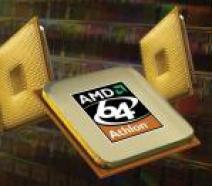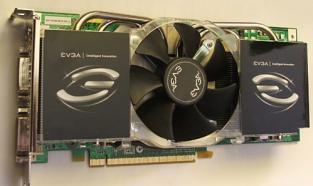OOPS! You forgot to upload swfobject.js ! You must upload this file for your form to work.
The next generation of AMD Ryzen processors will retain Socket AM4 performance
![]()
|
xtreview is your : Video card - cpu - memory - Hard drive - power supply unit source |
|
|||
|
|
||||
 Recommended : Free unlimited image hosting with image editor
Recommended : Free unlimited image hosting with image editor
|
POSTER: computer news || THE NEXT GENERATION OF AMD RYZEN PROCESSORS WILL RETAIN SOCKET AM4 PERFORMANCE |
DATE:2017-05-24 |
|
|
AMD Representatives have already reported that the design of Socket AM4 has come to the market for a long time. Consumers are now trying to clarify over what term AMD will ensure the compatibility of future processors with existing motherboards. AMD representatives had to admit that in current motherboards with socket AM4 it will be possible to install not only hybrid processors Raven Ridge, which will be released in the next half of the year, but also "discrete" central processors of the next generation. As we know, Zen architecture first generation will give life to the updated Ryzen processors, which will be manufactured using a more advanced version of the 14-nm technology, and only then will be 7-nm processors with the Zen 2 architecture . At the same time, AMD representatives urge users to take a sober look at things, talking about the need to change the processor socket when implementing support for a new generation of memory or PCI Express 4.0. All these innovations will require switching to a new processors design , but AMD will try to stick to Socket AM4 for as long as the infrastructure allows. The question of further improving the frequency potential of Ryzen processors from AMD representatives was discussed . They admitted that the company will work to improve the frequency potential, but consumers should understand that the first-generation Ryzen were not in the best conditions for this: these processors combine a new process technology with a new architecture. By the way, for sure, taking into account this factor, a new revision of processors with Zen architecture of the first generation will use a more modern version of 14-nm technology, and not immediately switch to 7-nm technology with a new architecture. Speaking about the reasons for placing pin pins on the processor body (PGA), and not the motherboard (LGA) connector, AMD representatives recognized that both versions are equivalent in terms of reliability. The decisive factor was the lower cost of PGA for the end user. | ||
|
|
||
|
xtreview is your : Video card - cpu - memory - Hard drive - power supply unit source |
|
|
|
|
||
|
Xtreview Support  N-Post:xxxx Xtreview Support        |
THE NEXT GENERATION OF AMD RYZEN PROCESSORS WILL RETAIN SOCKET AM4 PERFORMANCE |
| Please Feel Free to write any Comment; Thanks  |
Pre-orders for new iPhone start next week (2017-09-07)
The fate of Toshiba Memory can be solved to the next environment (2017-09-07)
German stores are waiting for the arrival of Bristol Ridge processors by the end of next week (2017-08-07)
The overclocked version of Tesla Model 3 will be released next year (2017-07-31)
The bulk of 10-nm processors Intel will appear next year (2017-07-28)
The next generation of Microsoft HoloLens will receive an advanced specialized processor (2017-07-25)
Closed display of AMD X399-based motherboards scheduled for next Tuesday (2017-07-21)
Fresh trailer ekshena Agents of Mayhem demonstrates the ability of the next three heroes (2017-07-18)
Next week Blizzard will present a new addition for Hearthstone (2017-06-30)
Return of the Necromancer for Diablo III will be released next week (2017-06-21)
The release of the next generation iPhone does not really help Apple (2017-06-18)
Dual-core Coffee Lake models will be released early next year (2017-06-03)
The next phase of AMD Ryzen Threadripper announcement may fall on 30 July (2017-06-01)
The twentieth of June will be the next phase of AMD EPYC Naples announcement (2017-05-31)
The bulk of Intel Coffee Lake models will be released in the desktop segment early next year (2017-05-29)
The next generation of AMD Ryzen processors will retain Socket AM4 performance (2017-05-24)
The next phase of Intel X299 announcement and processors Skylake-X is scheduled for June 12 (2017-05-09)
Next week NVIDIA will get a chance to talk about Volta (2017-05-07)
The immediate and long-term plans of Samsung and TSMC for the implementation of the next technical processes (2017-05-07)
SK Hynix is going to equip serial video cards with GDDR6 memory from next year (2017-04-24)
![]()
To figure out your best laptops .Welcome to XTreview.com. Here u can find a complete computer hardware guide and laptop rating .More than 500 reviews of modern PC to understand the basic architecture


7600gt review
7600gt is the middle card range.
We already benchmarked this video card and found that ...

 geforce 8800gtx and 8800gts
geforce 8800gtx and 8800gts  Xtreview software download Section
Xtreview software download Section  AMD TURION 64 X2 REVIEW
AMD TURION 64 X2 REVIEW  INTEL PENTIUM D 920 , INTEL PENTIUM D 930
INTEL PENTIUM D 920 , INTEL PENTIUM D 930  6800XT REVIEW
6800XT REVIEW  computer hardware REVIEW
computer hardware REVIEW  INTEL CONROE CORE DUO 2 REVIEW VS AMD AM2
INTEL CONROE CORE DUO 2 REVIEW VS AMD AM2  INTEL PENTIUM D 805 INTEL D805
INTEL PENTIUM D 805 INTEL D805  Free desktop wallpaper
Free desktop wallpaper  online fighting game
online fighting game  Xtreview price comparison center
Xtreview price comparison center Lastest 15 Reviews


Rss Feeds
Last News
- The new version of GPU-Z finally kills the belief in the miracle of Vega transformation
- The motherboard manufacturer confirms the characteristics of the processors Coffee Lake
- We are looking for copper coolers on NVIDIA Volta computing accelerators
- Unofficially about Intels plans to release 300-series chipset
- The Japanese representation of AMD offered monetary compensation to the first buyers of Ryzen Threadripper
- This year will not be released more than 45 million motherboards
- TSMC denies the presentation of charges from the antimonopoly authorities
- Radeon RX Vega 64 at frequencies 1802-1000 MHz updated the record GPUPI 1B
- AMD itself would like to believe that mobile processors Ryzen have already been released
- AMD Vega 20 will find application in accelerating computations
- Pre-orders for new iPhone start next week
- Radeon RX Vega 57, 58 and 59: the wonders of transformation
- ASML starts commercial delivery of EUV-scanners
- The older Skylake processors with a free multiplier are removed from production
- Meizu will release Android-smartphone based on Helio P40
- AMD Bristol Ridge processors are also available in American retail
- The fate of Toshiba Memory can be solved to the next environment
- duo GeForce GTX 1080 Ti in GPUPI 1B at frequencies of 2480-10320 MHz
- New Kentsfield overclocking record up to 5204 MHz
- Lenovo released Android-smartphone K8

HALO 3 HALO 3 - Final Fight!

PREY Prey is something you don t often see anymore: a totally unigue shooter experience.

computer news computer parts review Old Forum Downloads New Forum Login Join Articles terms Hardware blog Sitemap Get Freebies


